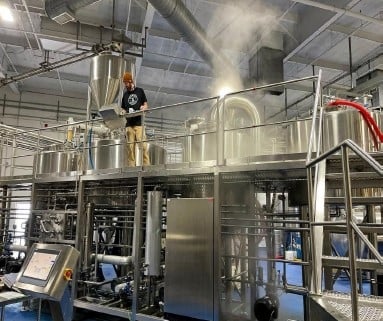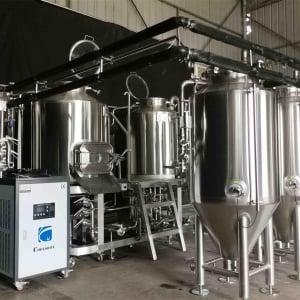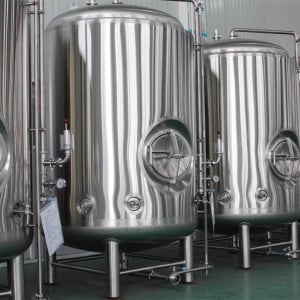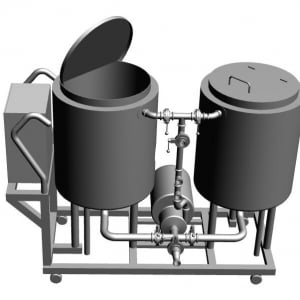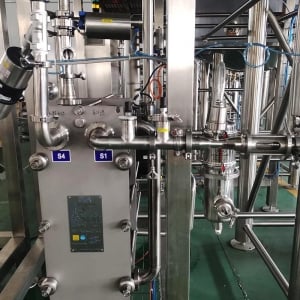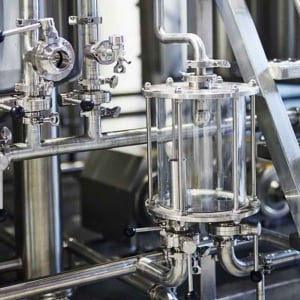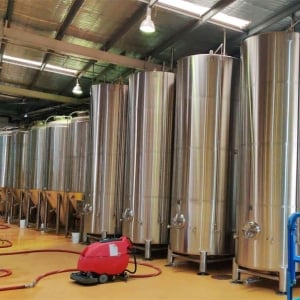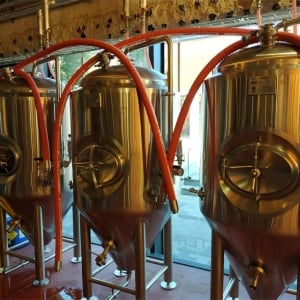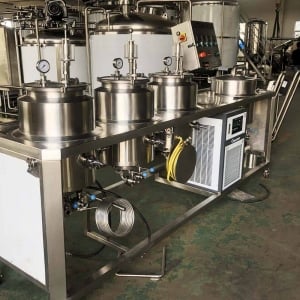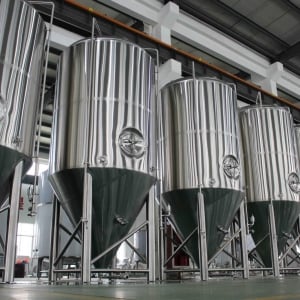brewery canning machine
brewery canning machines are the lifeblood of the beverage industry, offering unique and flavorful beers that cater to discerning palates. But for these small-batch brewers, scaling up production and distribution can be a significant hurdle. That’s where canning lines come in, providing an efficient and cost-effective way to package and distribute their beers to a wider audience. In this comprehensive guide, we’ll delve into the world of brewery canning machines, exploring everything from the different types of equipment available to the brewing process itself, and the factors to consider when choosing a supplier.
Brewery Canning Machine Overview
Canning lines are a series of interconnected machines that automate the filling, sealing, labeling, and palletizing of beer cans. They offer several advantages over traditional bottling methods, including:
- Increased Efficiency: Canning lines can fill and seal cans much faster than bottling lines, significantly boosting production output.
- Reduced Costs: Aluminum cans are lighter and less expensive to transport than glass bottles, leading to lower distribution costs.
- Improved Sustainability: Aluminum cans are more recyclable than glass bottles, making them a more environmentally friendly option.
- Enhanced Shelf Life: Cans provide a superior barrier to light and oxygen, extending the shelf life of beer.
- Consumer Appeal: Cans are seen as a more portable and convenient option for consumers, perfect for taking to picnics, sporting events, or enjoying outdoors.
With these benefits in mind, it’s no wonder that more and more craft breweries are investing in canning lines.

Types of Brewery Canning Machines
Canning lines come in a variety of configurations to suit the needs of different breweries. Here’s a breakdown of the main types:
- Semi-Automatic Canning Lines: Ideal for small-scale breweries, these lines require manual intervention at some stages of the canning process, such as loading cans and operating the seamer. They offer a cost-effective entry point into canning, but their output is limited compared to fully automatic lines.
- Automatic Canning Lines: These lines automate the entire canning process, from rinsing and filling cans to seaming, labeling, and palletizing. They are a good option for medium-sized to large breweries that require high production volumes.
- Craft Canning Lines: These are specialized canning lines designed specifically for the needs of craft breweries. They are typically smaller and more affordable than traditional automatic lines, but still offer a high level of automation.
Choosing the right type of canning line depends on your brewery’s production volume, budget, and desired level of automation.
Brewery Canning Process
The canning process can be broken down into several key steps:
- Can Rinsing: Empty cans are rinsed with water or sanitizer to remove any debris or contaminants.
- Can Filling: The beer is purged with CO2 to remove oxygen and then filled into the cans using a filler machine. The CO2 helps to preserve the freshness of the beer and prevents oxidation.
- Can Seaming: The filled cans are sealed with a can seamer, which creates a hermetic seal to prevent air and contaminants from entering the can.
- Can Labeling: Labels are applied to the cans with a labeling machine. These labels typically include the brewery’s name, logo, beer style, alcohol content, and other required information.
- Can Date Coding: A date code is applied to the cans to indicate the bottling date and best-by date.
- Case Packing: The labeled cans are packed into cardboard cases for easy storage and transportation.
- Palletizing: The cases are then stacked onto pallets for further transport and distribution.
Understanding each step of the canning process is essential for ensuring the quality and consistency of your canned beer.
Brewery Canning Machine Capacity, Space Requirements & Design Considerations
When choosing a canning line, it’s important to consider several factors, including:
- Capacity: Canning lines are typically rated by the number of cans per minute (CPM) that they can produce. Choose a line that can meet your current and future production needs.
- Space Requirements: Canning lines can be quite large, so it’s important to ensure that you have the space to accommodate one in your brewery.
- Design Considerations: Think about the layout of your brewery and choose a canning line that will fit efficiently into your existing space.
- Customization: Some manufacturers offer the ability to customize canning lines to meet the specific needs of a brewery.
By carefully considering these factors, you can choose a canning line that will help you to efficiently and effectively package your beer.
Brewery Canning Machine Suppliers & Price Range
| Supplier | Location | Range of Canning Lines | Price Range |
|---|---|---|---|
| American Canning Equipment | Ayer, MA, USA | Semi-automatic and automatic canning lines | $25,000 – $500,000+ |
| Cantech International | Sparta, WI, USA | Craft canning lines and complete canning systems | $50,000 – $300,000+ |
| Speeco | Lake Mills, WI, USA | Automatic canning lines for craft breweries and larger facilities | $100,000 – $1,000,000+ |
| Wild Goose Canning | Portland, OR, USA | Mobile canning services and small-scale canning lines | Variable (contact supplier for quote) |
| KHS | Dortmund, Germany | High-capacity canning lines for large breweries | $500,000+ |
| CXL | Wuxi, Jiangsu, China | Affordable canning lines for small and medium-sized breweries | $20,000 – $150,000 |
Please note that these are just a few examples, and there are many other suppliers of brewery canning lines available. The price of a canning line will vary depending on the size, capacity, and level of automation of the line. It’s important to get quotes from several suppliers before making a purchase.
Brewery Canning Machine Installation, Operation & Maintenance
Once you’ve chosen a canning line, you’ll need to have it installed by a qualified technician. The installation process can take several days, depending on the complexity of the line.
Operating a canning line requires some training. Most suppliers will provide training for your brewery staff on how to operate and maintain the line.
Here are some key things to keep in mind when operating a canning line:
- Sanitation: It’s essential to keep your canning line clean and sanitary to prevent contamination of your beer. This includes regularly cleaning and sanitizing all of the equipment in the line.
- Maintenance: Regular maintenance is essential to keep your canning line running smoothly and efficiently. This includes lubricating moving parts, inspecting seals, and replacing worn parts.
- Troubleshooting: Even with regular maintenance, problems can arise. Being familiar with common troubleshooting procedures can help you to get your canning line back up and running quickly.
Choosing a Brewery Canning Machine Supplier
When choosing a supplier for your brewery canning line, it’s important to consider the following factors:
- Reputation: Choose a supplier with a good reputation for quality equipment and customer service.
- Experience: Look for a supplier that has experience working with craft breweries.
- Service: Make sure that the supplier offers training and support for your canning line.
- Price: Get quotes from several suppliers before making a decision.
By carefully considering these factors, you can choose a supplier that will provide you with the quality equipment and support you need to successfully can your beer.
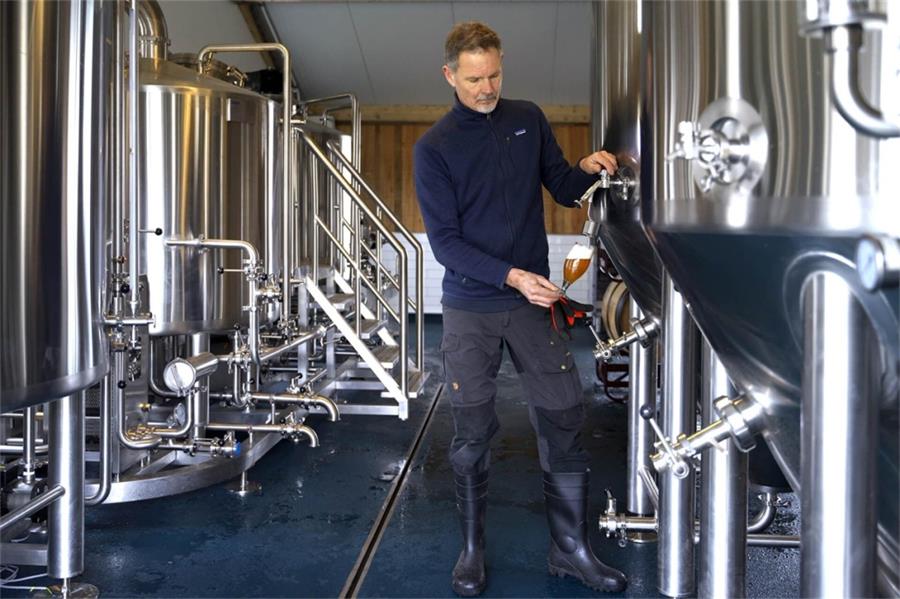
Brewery Canning Machine Pros & Cons
Pros:
- Increased efficiency and production output
- Reduced costs compared to bottling
- Improved sustainability with recyclable aluminum cans
- Enhanced shelf life of beer
- Consumer appeal of convenient and portable cans
Cons:
- Higher initial investment compared to bottling lines
- Requires additional space in your brewery
- More complex to operate and maintain than bottling lines
- Not suitable for all types of beer (e.g., high-gravity beers)
Weighing the pros and cons of canning will help you decide if it’s the right investment for your brewery.
FAQs
Here are some frequently asked questions about brewery canning machines:
Q: How much does a canning line cost?
A: The cost of a canning line can vary depending on the size, capacity, and level of automation of the line. Generally, expect a range of $20,000 to over $1 million.
Q: What is the difference between a semi-automatic and automatic canning line?
A: Semi-automatic canning lines require manual intervention at some stages of the canning process, such as loading cans and operating the seamer. Automatic canning lines automate the entire canning process.
Q: How do I choose the right canning line for my brewery?
A: The right canning line for your brewery will depend on your production volume, budget, and desired level of automation. Consider factors like capacity, space requirements, and ease of use.
Q: The permitting requirements for operating a canning line will vary depending on your location. It’s important to check with your local authorities to determine what permits you may need.
Q: How can I ensure the quality of my canned beer?
A: Proper sanitation and maintenance of your canning line are essential for ensuring the quality of your canned beer. In addition, using high-quality cans and lids will help to prevent spoilage.
Q: What are the benefits of using mobile canning services?
A: Mobile canning services can be a good option for small breweries that don’t have the space or budget for their own canning line. They can also be a helpful way to test the market for canned beer before making a large investment in a canning line.
Q: Where can I learn more about brewery canning machines?
A: There are a number of resources available online and in print that can teach you more about brewery canning machines. You can also contact a supplier of canning lines for more information.

